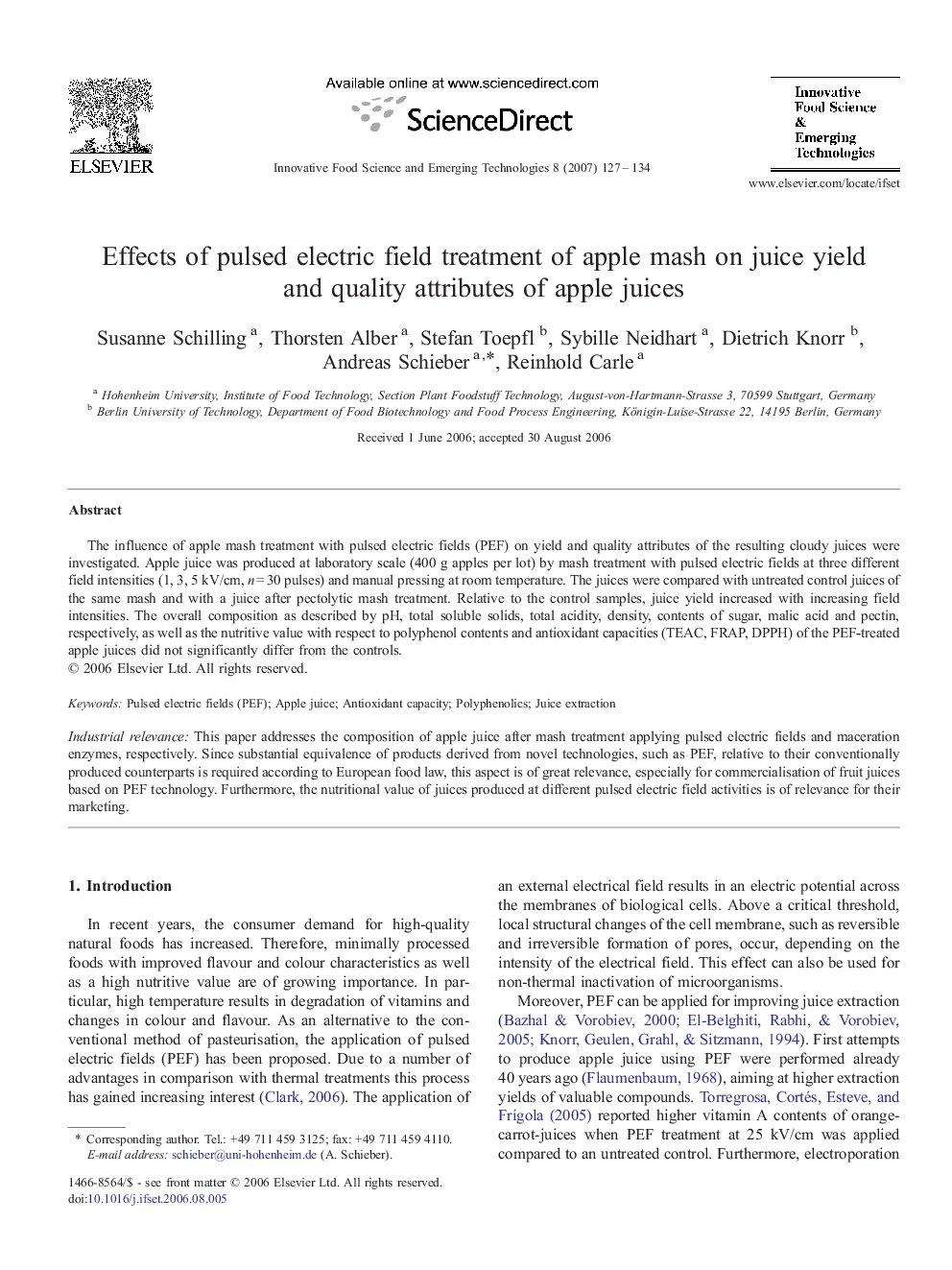| Article ID | Journal | Published Year | Pages | File Type |
|---|---|---|---|---|
| 2087464 | Innovative Food Science & Emerging Technologies | 2007 | 8 Pages |
The influence of apple mash treatment with pulsed electric fields (PEF) on yield and quality attributes of the resulting cloudy juices were investigated. Apple juice was produced at laboratory scale (400 g apples per lot) by mash treatment with pulsed electric fields at three different field intensities (1, 3, 5 kV/cm, n = 30 pulses) and manual pressing at room temperature. The juices were compared with untreated control juices of the same mash and with a juice after pectolytic mash treatment. Relative to the control samples, juice yield increased with increasing field intensities. The overall composition as described by pH, total soluble solids, total acidity, density, contents of sugar, malic acid and pectin, respectively, as well as the nutritive value with respect to polyphenol contents and antioxidant capacities (TEAC, FRAP, DPPH) of the PEF-treated apple juices did not significantly differ from the controls.Industrial relevanceThis paper addresses the composition of apple juice after mash treatment applying pulsed electric fields and maceration enzymes, respectively. Since substantial equivalence of products derived from novel technologies, such as PEF, relative to their conventionally produced counterparts is required according to European food law, this aspect is of great relevance, especially for commercialisation of fruit juices based on PEF technology. Furthermore, the nutritional value of juices produced at different pulsed electric field activities is of relevance for their marketing.
